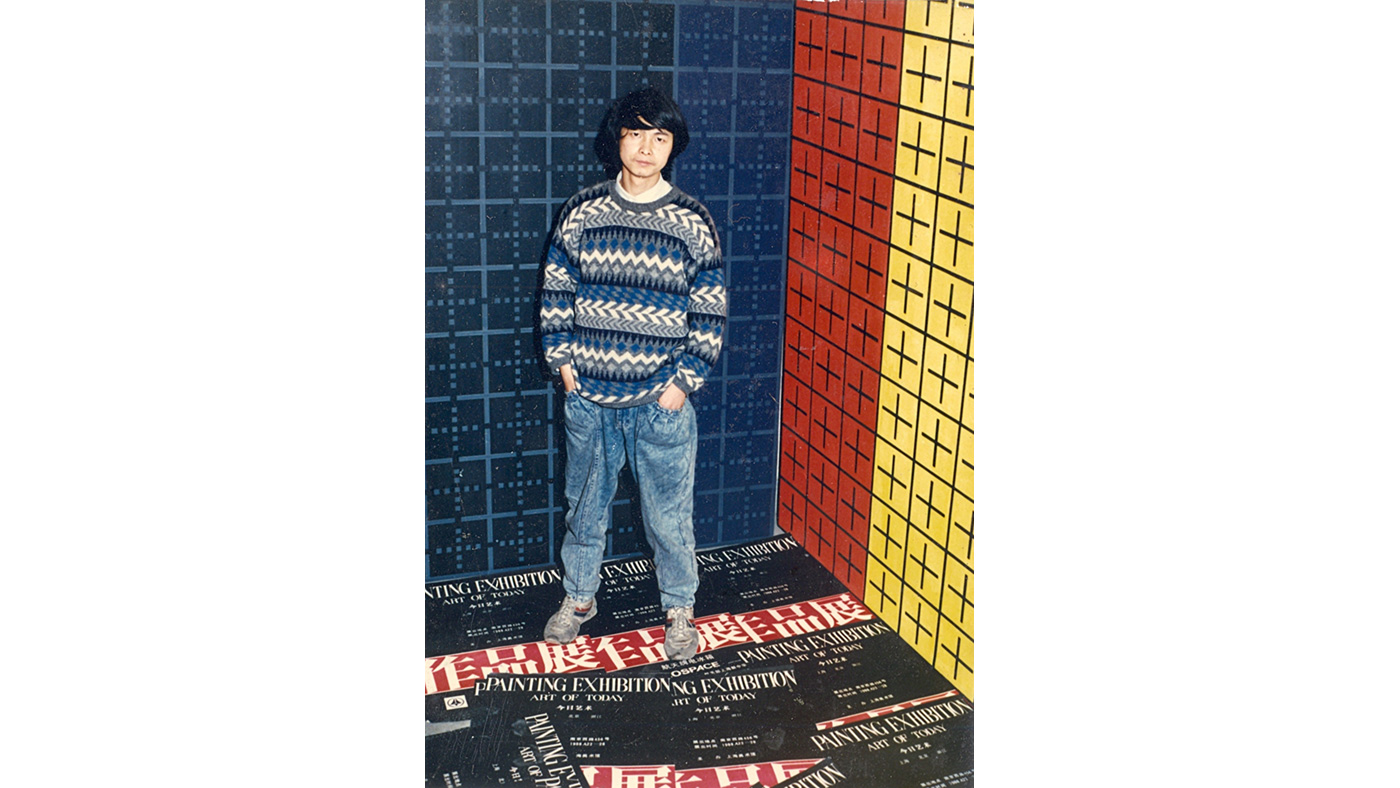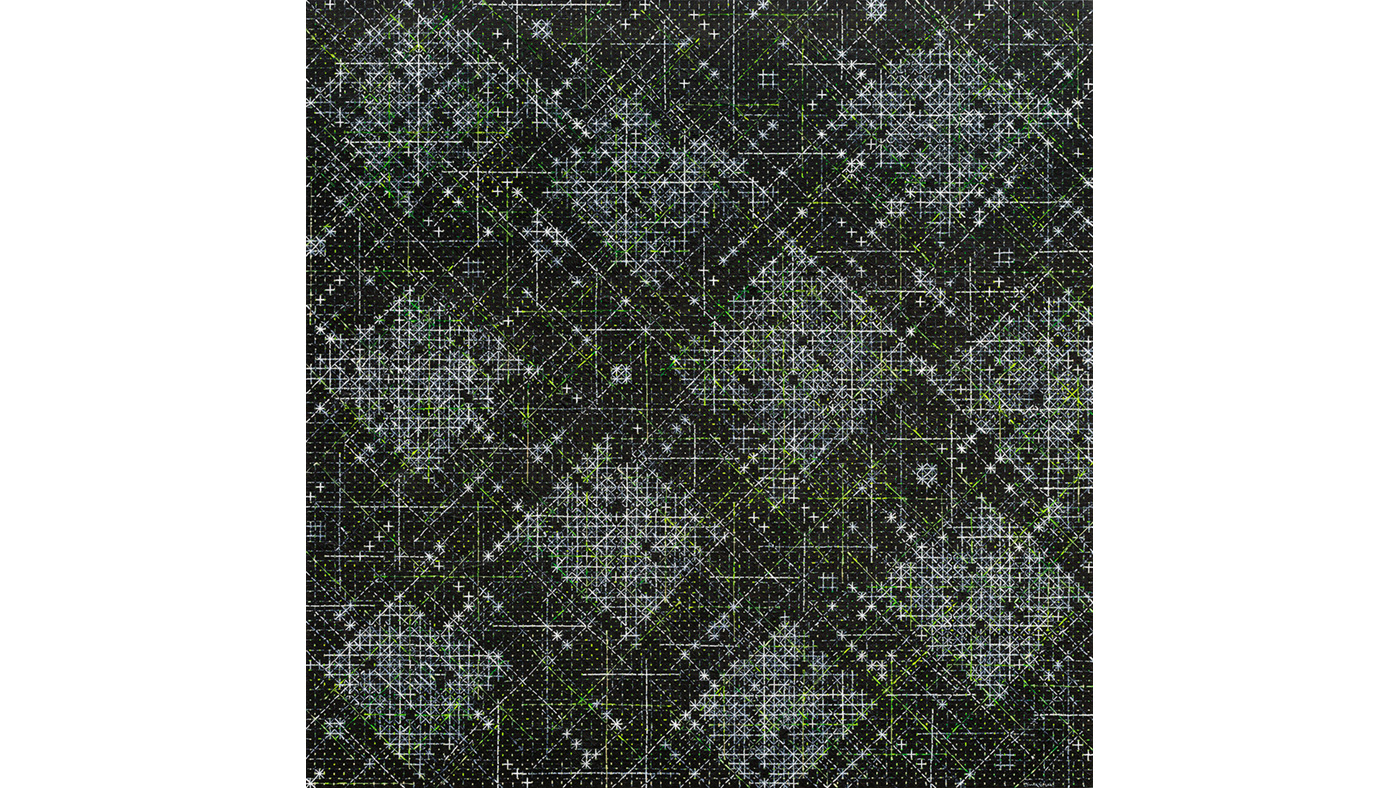Ding Yi: Chinese art, but not as you know it
Ahead of his first solo exhibition in London, one of China's leading abstract artists discusses choosing the road less travelled
A free daily email with the biggest news stories of the day – and the best features from TheWeek.com
You are now subscribed
Your newsletter sign-up was successful


Of course, I haven't missed the fact that Chinese art has become very fashionable in the west recently. It was big before in the mid-1990s, but in a different way. Back then, there were some touring exhibitions and I remember that reviews didn't even mention my work. What was featured was political pop art – and that became representative of what contemporary Chinese art was all about.
Back in the 1980s, there was no real abstract art in China. What they called abstract art was really more poetic; not real abstraction in the sense of being rational and detached. It was then that I decided I wanted to be a 'real' abstract artist. That put me outside the mainstream. When I was at school, art in China was nearly all for political propaganda. It was that Soviet-derived style. So when I left the country and saw western art for the first time, it was hugely influential on me. I spent a month in Italy and visited as many museums and galleries as I could. What I saw I'd only seen in books before. I found myself correcting a lot of misconceptions – not least because the books tended to be printed in black and white, or with the colour completely off.
If you do something like abstract art for 30 years, it's going to take on something like its own force of will – and I remember art critics in China once putting it into the same theoretical framework as Zen Buddhism, like a monk repeating a mantra all day, every day. And over time, abstract art can exist on a kind of spiritual plane. That said, I've found that how one views my work depends on your background and age – younger people tend to see it as reflecting changes in the urban environment.
The Week
Escape your echo chamber. Get the facts behind the news, plus analysis from multiple perspectives.

Sign up for The Week's Free Newsletters
From our morning news briefing to a weekly Good News Newsletter, get the best of The Week delivered directly to your inbox.
From our morning news briefing to a weekly Good News Newsletter, get the best of The Week delivered directly to your inbox.

Either way, I know I need to be alone [when I paint]. Painting can be hard work – standing all day leaves my back stiff. But there's no sense of hardship to it. It's what I do. Abstract painting is immersive. You don't notice time passing. People are often surprised that I don't use assistants to produce the works. But I don't think an assistant would be in the position to help much. I don't sketch – every work starts in my head and becomes what it becomes over time.
Besides, the work is not just about repeating a motif. There's an emotional element to it. And that's vital. A painting is a flat object, hung on a wall in silence – it has to offer the viewer something they can't get enough off, that they can't be finished with. Artists who use assistants strike me as working more in a type of manufacturing. But I wouldn't call it art. Manufactured art may look sophisticated, but it doesn't tend to offer the viewer any connection.
In choosing to practice abstract art, I knew then that in China I'd never be a trendy artist. I'd never be a rock-star artist, especially not with my less than fashionable hairstyle. I knew I'd have to be one of those artists who can only prove themselves over time. I think I'm just about there. And, funnily enough, a lot of the Chinese artists who did that political pop art aren't practicing any more.
DING YI is one of China's leading contemporary artists, and certainly its leading abstract artist. His large-scale works focus on the repetition of a cross or 'x' motif, built up – in his latest works – to create effects akin to a fractal or crystalline structure, or reflective of the intensely urban landscape of his home city of Shanghai. Ding Yi's exhibition is at Timothy Taylor gallery until 24 June; timothytaylor.com
A free daily email with the biggest news stories of the day – and the best features from TheWeek.com
-
 Switzerland could vote to cap its population
Switzerland could vote to cap its populationUnder the Radar Swiss People’s Party proposes referendum on radical anti-immigration measure to limit residents to 10 million
-
 Political cartoons for February 15
Political cartoons for February 15Cartoons Sunday's political cartoons include political ventriloquism, Europe in the middle, and more
-
 The broken water companies failing England and Wales
The broken water companies failing England and WalesExplainer With rising bills, deteriorating river health and a lack of investment, regulators face an uphill battle to stabilise the industry